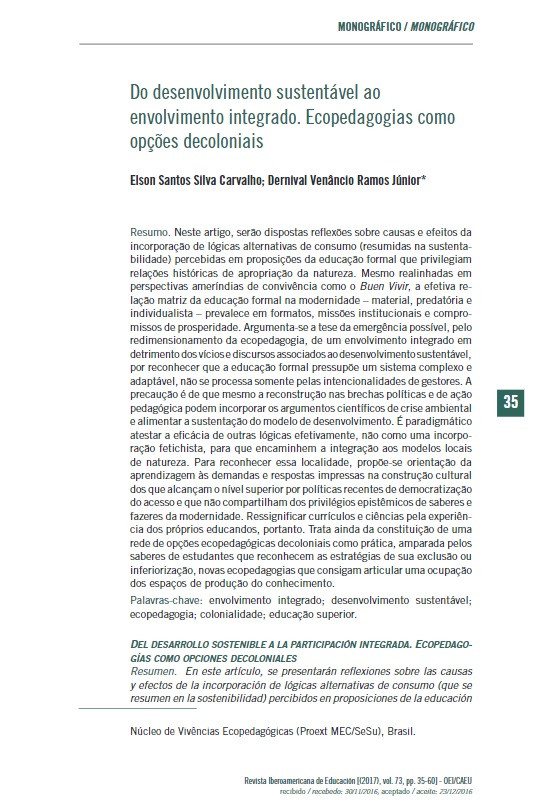
GCED Basic Search Form
Quick Search
Вы здесь
Ресурсы

In this article, reflections will be presented on the causes and effects of the incorporation of alternative logics of consumption (which are summarized in sustainability) perceived in propositions of formal education that emphasize the historical relationships of appropriation of nature. Even realigned with an Amerindian perspective of coexistence such as Good Living, the matrix relationship of formal education in modern times - material, predatory and individualistic - prevails in formats, institutional missions and prosperity commitments. The thesis of the possible emergence, through the new dimensions of ecopedagogy, of an integrated participation at the expense of vices and discourses related to sustainable development is sustained, recognizing that formal education requires a complex and adaptive system, not only the intentions of managers for your process.
